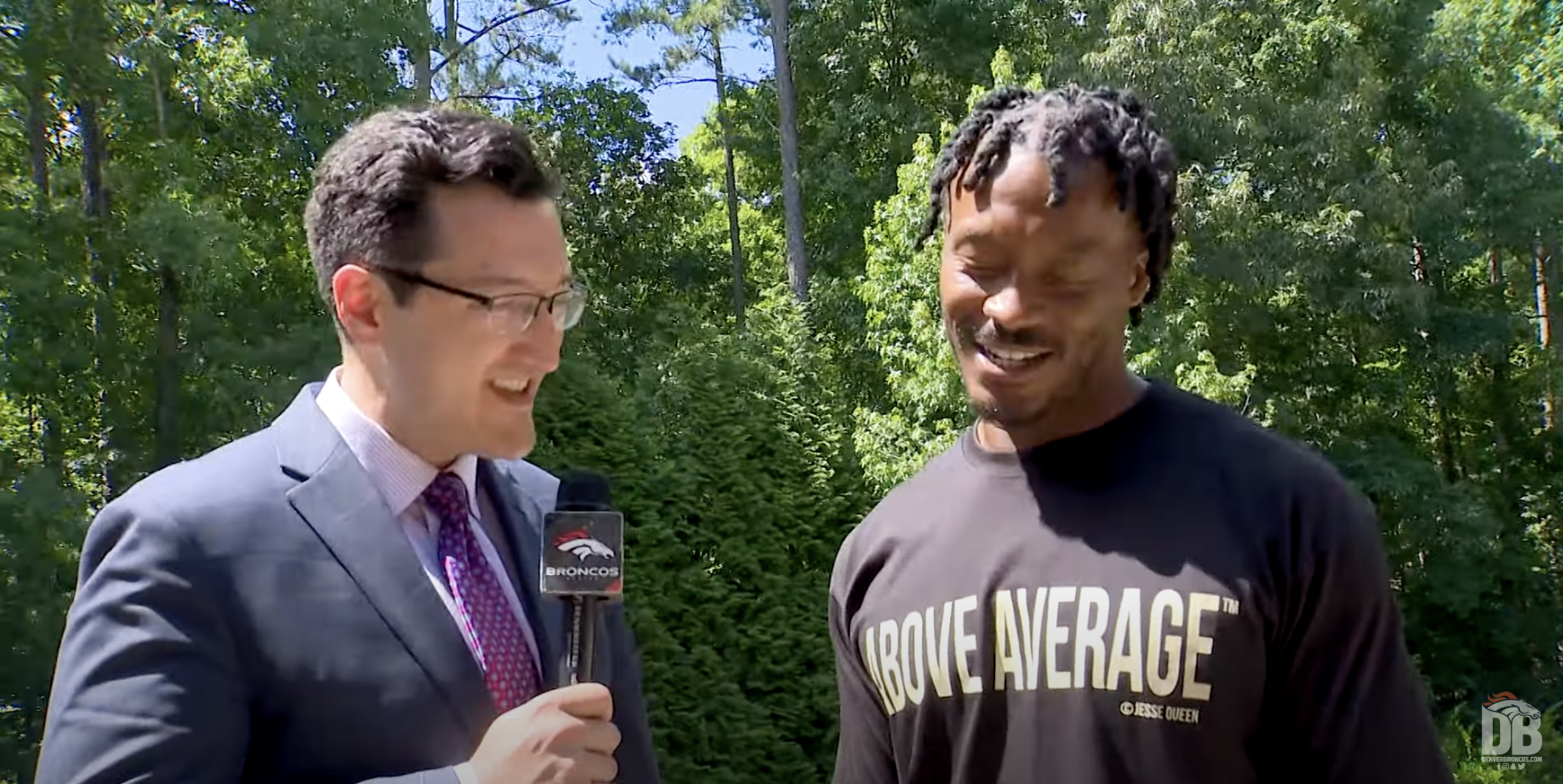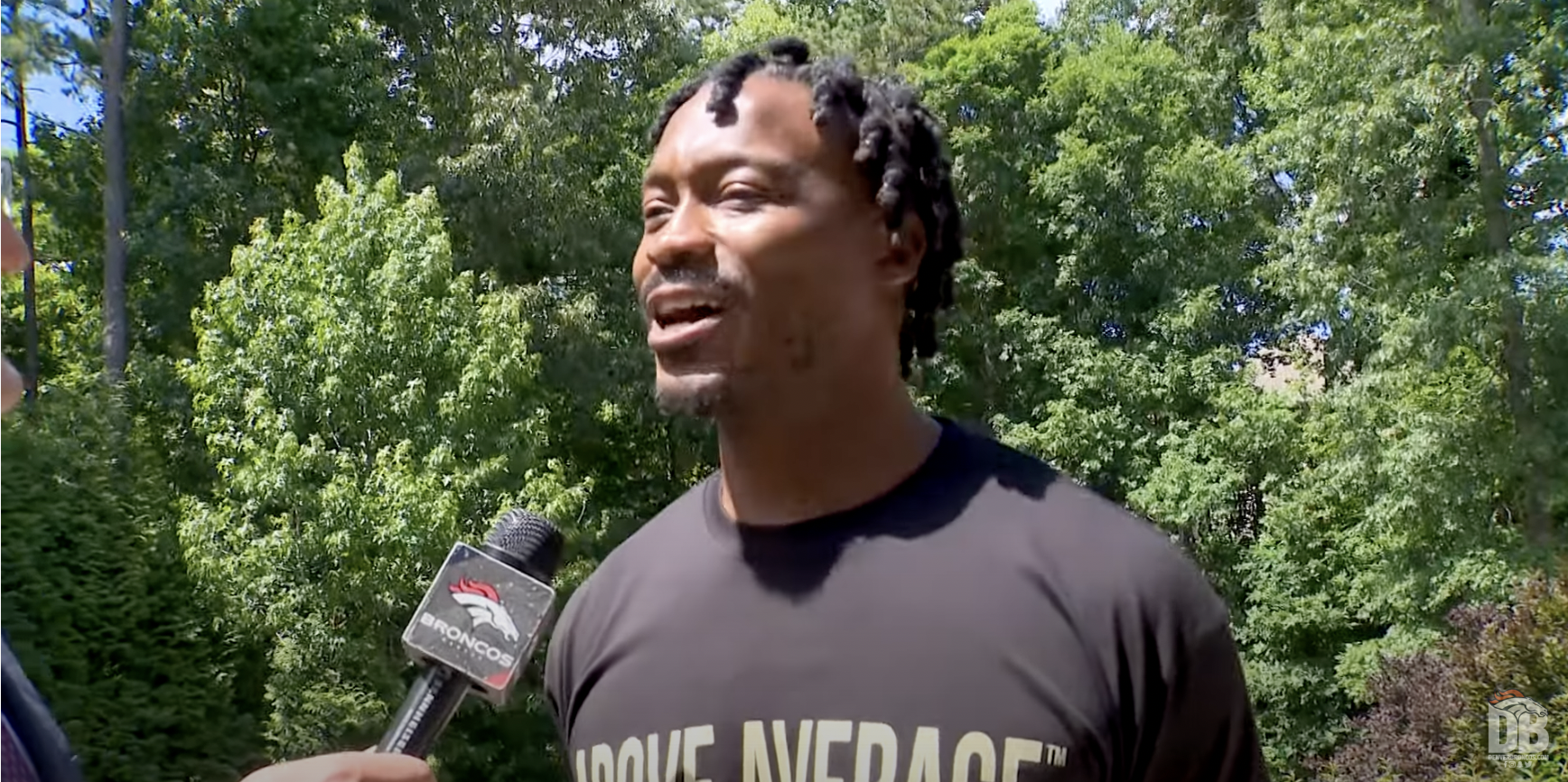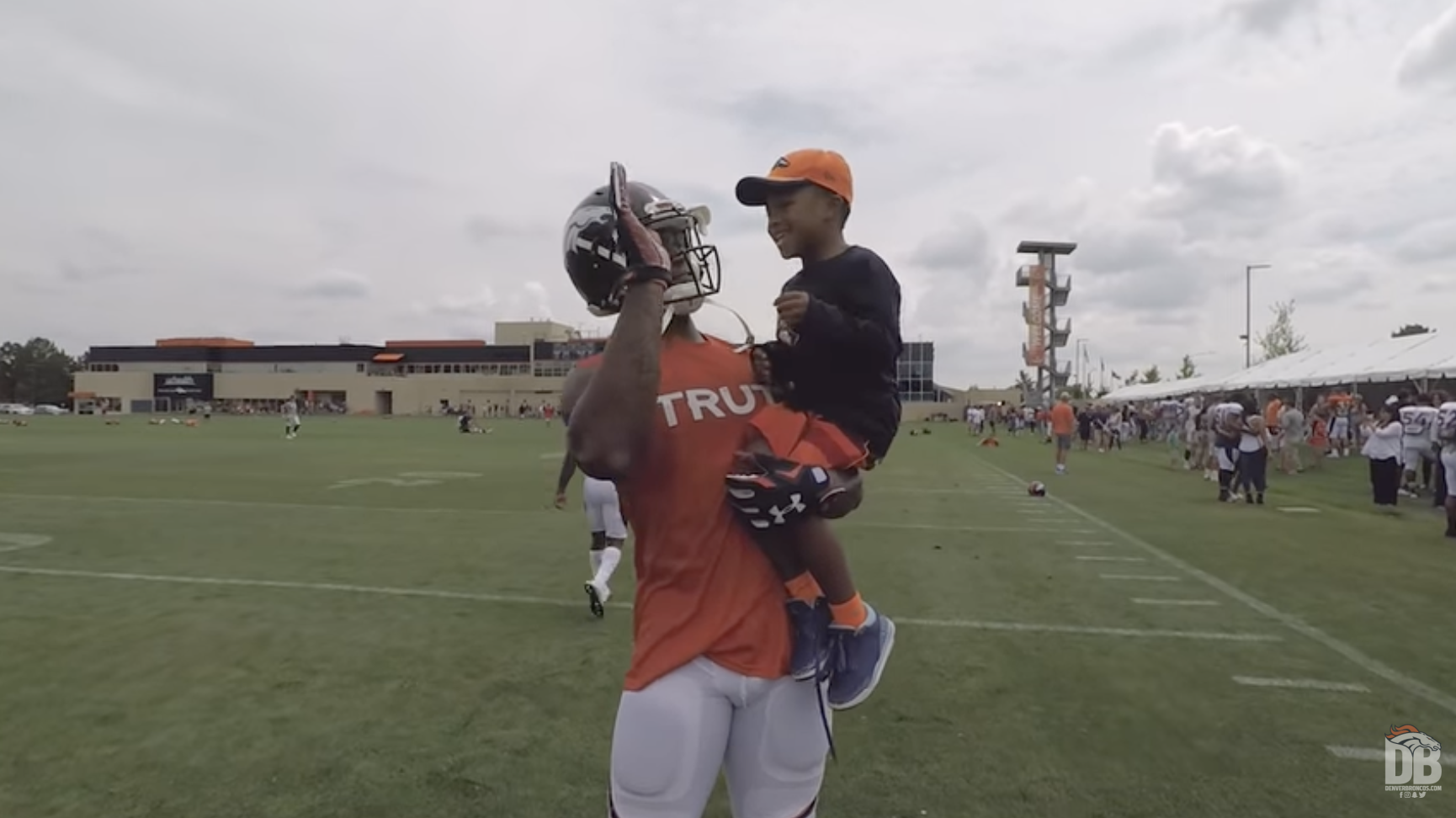
New information has been released regarding the tragic and unexpected death of former Broncos and Jets receiver Demaryius Thomas, who died at the age of 33 in his Georgia home last December.

Demaryius Thomas via Denver Broncos YouTube
According to the doctors Boston University who provided a report to The New York Times, Thomas had suffered from a Chronic Traumatic Encephalopathy (CTE) at the time of his death.
A CTE is a type of brain condition that occurs when an individual receives a heavy blow to the head.
This CTE most likely occurred as the result of a car accident Thomas had been involved in back in 2019, but his role as a football player may have also played a part. Medical reports show that he had suffered from ongoing seizures between the incident and his eventual death as a result of the accident.

Demaryius Thomas via Denver Broncos YouTube
According to Dr. Ann McKee, the BU neuropathologist who studied Thomas’ brain, the seizures he suffered from are not a typical result from a CTE.
“He had two different conditions in parallel,” said McKee.
“Like so many that have gone before, we found stage 2 CTE in the brain of Demaryius Thomas,” McKee continued. “The question I keep asking myself is ‘When will enough be enough?’ When will athletes, parents and the public at large stop ignoring the risks of American football and insist that the game be changed to reduce subconcussyve hits?”
In a statement provided by Katina Smith, Thomas’ mother, she said that “Once I became aware of CTE and began to familiarize myself with the symptoms, I noticed that Demaryius was isolating himself and I saw other changes in him. He was just so young, and it was horrible to see him struggle.”

Source: Denver Broncos YouTube
Stage 2 CTE, which is specifically what Thomas had been diagnosed with, typically shows itself in the form of “progressive behavior, cognitive and mood abnormalities.” Thomas’ family members said that he had since the accident began showing signs of depression as well as trouble with memory retention.
Smith warned other parents of the dangers that can occur to young athletes who don’t take proper care and preventative measures in regards to concussions and other brain trauma that can frequently occur in football, saying “His father and I hope all families learn the risks of playing football. We don’t want other parents to have to lose their children like we did.”
Do you believe more should be done to prevent brain injuries in football?